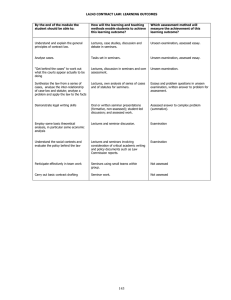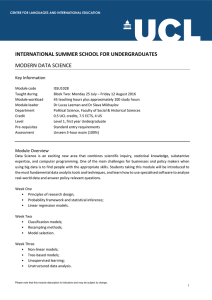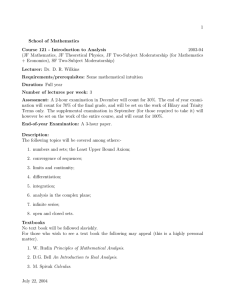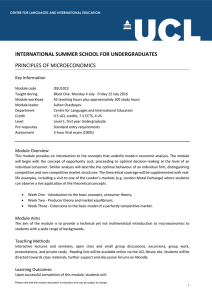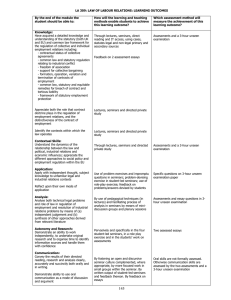LA307: LAW OF TRUSTS: LEARNING OUTCOMES
advertisement
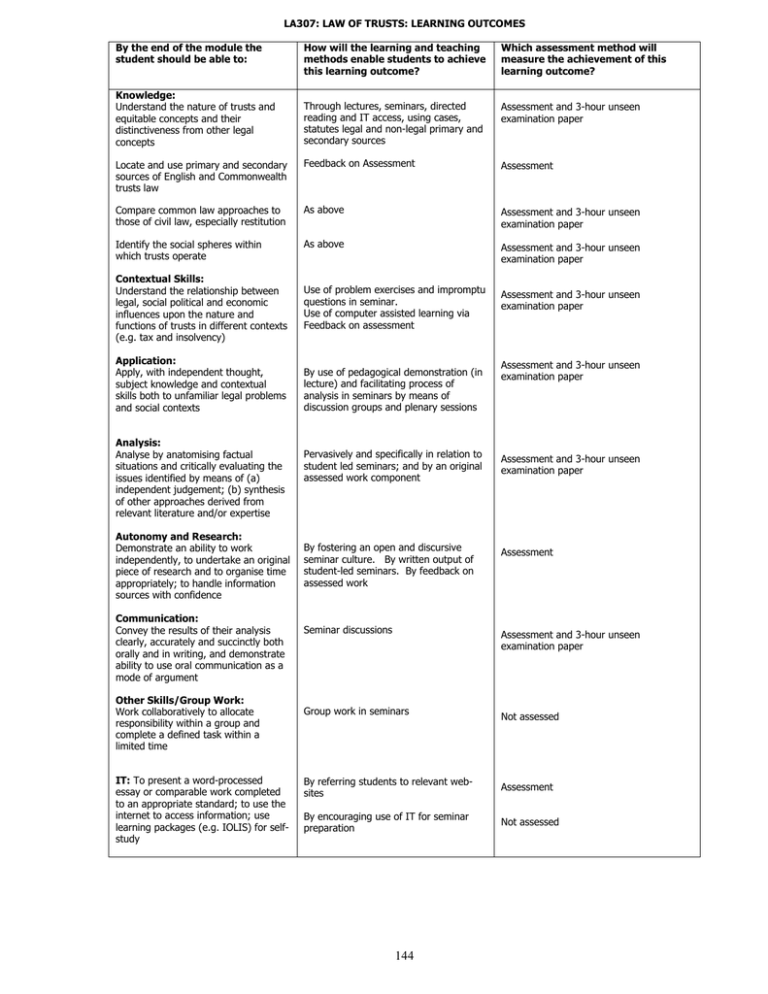
LA307: LAW OF TRUSTS: LEARNING OUTCOMES By the end of the module the student should be able to: How will the learning and teaching methods enable students to achieve this learning outcome? Which assessment method will measure the achievement of this learning outcome? Through lectures, seminars, directed reading and IT access, using cases, statutes legal and non-legal primary and secondary sources Assessment and 3-hour unseen examination paper Locate and use primary and secondary sources of English and Commonwealth trusts law Feedback on Assessment Assessment Compare common law approaches to those of civil law, especially restitution As above Assessment and 3-hour unseen examination paper Identify the social spheres within which trusts operate As above Assessment and 3-hour unseen examination paper Use of problem exercises and impromptu questions in seminar. Use of computer assisted learning via Feedback on assessment Assessment and 3-hour unseen examination paper Knowledge: Understand the nature of trusts and equitable concepts and their distinctiveness from other legal concepts Contextual Skills: Understand the relationship between legal, social political and economic influences upon the nature and functions of trusts in different contexts (e.g. tax and insolvency) Application: Apply, with independent thought, subject knowledge and contextual skills both to unfamiliar legal problems and social contexts Analysis: Analyse by anatomising factual situations and critically evaluating the issues identified by means of (a) independent judgement; (b) synthesis of other approaches derived from relevant literature and/or expertise Autonomy and Research: Demonstrate an ability to work independently, to undertake an original piece of research and to organise time appropriately; to handle information sources with confidence Communication: Convey the results of their analysis clearly, accurately and succinctly both orally and in writing, and demonstrate ability to use oral communication as a mode of argument Other Skills/Group Work: Work collaboratively to allocate responsibility within a group and complete a defined task within a limited time IT: To present a word-processed essay or comparable work completed to an appropriate standard; to use the internet to access information; use learning packages (e.g. IOLIS) for selfstudy By use of pedagogical demonstration (in lecture) and facilitating process of analysis in seminars by means of discussion groups and plenary sessions Assessment and 3-hour unseen examination paper Pervasively and specifically in relation to student led seminars; and by an original assessed work component Assessment and 3-hour unseen examination paper By fostering an open and discursive seminar culture. By written output of student-led seminars. By feedback on assessed work Assessment Seminar discussions Assessment and 3-hour unseen examination paper Group work in seminars Not assessed By referring students to relevant websites Assessment By encouraging use of IT for seminar preparation Not assessed 144
